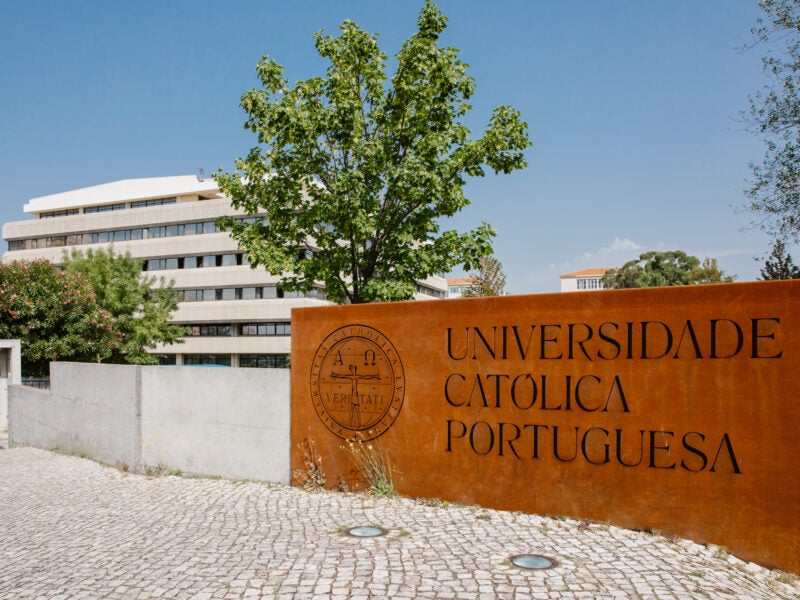
Gitmo Media is a new three-part podcast series that examines how we experience and understand the Guantanamo Bay Naval Base and its complex history. Produced by Annenberg PhD candidate Muira McCammon and Center for Media at Risk 2018-2019 postdoctoral fellow Daniel Grinberg the series considers how media forms have shaped the perspectives of visitors, personnel and detainees at the site and how they have used media to enhance public knowledge of this exceptional and often overlooked space.
“Documenting Detention” focuses on practitioners who visit Guantanamo Bay and try to convey their impressions of the contentious activities occurring there, amidst and in spite of rigorous information controls.
This episode features an interview with documentarian Johanna Hamilton, director of the 2018 short film The Trial, which follows the legal team representing Guantanamo detainee Ammar al Baluchi. With only select journalists and filmmakers granted access to the detention site, Hamilton reflects on the challenges, but also the importance of telling forgotten stories to keep the public informed.
MUSIC
“All the Right Things” by Son Lux (intro)
“Morgenrot” by Hauschka
“They Made us Leave” by Hauschka
“My Kids Live on Mars” by Hauschka
“Ashes” by Hilary Hahn & Hauschka
“Two Fish and an Elephant” by Khruangbin (outtro)
CREDITS
Johanna Hamilton is an award-winning director/producer whose work explores cultural, political and historical stories by focusing on the human experience. In 2007, she worked with Abigail Disney and Gini Reticker to co-produce PRAY THE DEVIL BACK TO HELL, the account of a group of brave and visionary women who demanded peace for Liberia, a nation torn to shreds by a decades old civil war. It won Best Documentary at the 2008 Tribeca Film Festival and was short-listed for an Academy Award. Subsequent to that, she directed and produced Sundance-supported 1971, a feature documentary about a group of citizens that broke into a small FBI office outside Philadelphia that revealed the existence of COINTELPRO, a massive illegal surveillance operation. Never caught, the burglars revealed themselves for the first time in the film. It premiered at the Tribeca Film Festival, won the IDA’s ABC News VideoSource award and Cinema Eye’s Spotlight Award, and was nominated for an Emmy after airing on PBS’s Independent Lens.
She recently completed Discreet Airlift, a short film focusing on residents of a town in North Carolina seeking answers about the role their state played in the U.S. torture program. Commissioned by Field of Vision, it aired on the online news publication The Intercept. Hamilton has produced non-fiction programming for PBS, the Washington Post/Newsweek Productions and New York Times Television, amongst others. Find her on Twitter @JHamilton71
Muira McCammon is a doctoral candidate at the Annenberg School for Communication where she studies the media, the military and the relationship between the two. Prior to beginning the doctoral program and under the auspices of the Beinecke Scholarship, McCammon received an M.A. in Translation Studies/Comparative Literature from the University of Massachusetts, Amherst, where she wrote her thesis on the Guantánamo Bay Detainee Library. Additionally, she holds a B.A. in French/Francophone Studies and a B.A. in Political Science/International Relations from Carleton College. A former investigative reporter and podcast critic, McCammon’s writings have appeared in Playboy, Atlas Obscura, Slate, The Massachusetts Review, How We Get to Next, Waypoint by VICE, Paste Magazine, and a number of other publications. She has previously held fellowships at the Sitka Fellows Program, the Harvard Law Library Innovation Lab, and the Turkish Fulbright Commission. She is also a proud 2017 recipient of a Rhizome microgrant.
Daniel Grinberg is the 2018-2019 the Postdoctoral Fellow at the Center for Media at Risk at University of Pennsylvania’s Annenberg School for Communication. In August 2018, he received his PhD from the Department of Film and Media Studies at the University of California, Santa Barbara. Previously, he received a M.A. in Communication and Culture at Indiana University and a B.A. in English Literature and Foreign Affairs at the University of Virginia. In between, he also taught English at a high school in France and embarked on an ongoing quest to watch every film in the Criterion Collection. Currently, he is at work on his first book, Partial Disclosures: Documentary Media and the Freedom of Information Act, which examines how documentary media and FOIA disclosures mediate public knowledge of covert security and surveillance practices. He has also written on topics such as terror watchlists, predictive security algorithms, and the militainment network of the Guantanamo Bay Naval Base. His research interests include government media and censorship, war and security media, surveillance, documentary media, media activism, and digital technologies in both U.S. and global contexts. He is also the co-editor of the forthcoming “Queer Surveillance” issue of Surveillance & Society and the “Surveillance States” issue of Media Fields Journal; the co-organizer of the University of California Humanities Research Institute “War, Security, and Digital Media” Graduate Working Group; and the co-organizer of the Power Dynamics: 2016 Media and the Environment Conference and Ruins: 2017 Media Fields Conference.
This episode was produced by Muira McCammon and Daniel Grinberg and edited by Aaron Shapiro.
Transcript: This transcript was automatically generated. The transcript may contain errors or omissions.
FEEDBACK
We’d love to hear from you, especially if you have stories about this podcast, our Center and anything in between. Feel free to write a note or record a voice memo on your smartphone and email it to media.risk@asc.upenn.edu; you can also find us on Twitter and Facebook at @ASCMediaRisk. Though we’re a small operation, we’re always open to pitches and new stories. Additionally if you would like a transcript of this episode, please contact Joanna Birkner.


